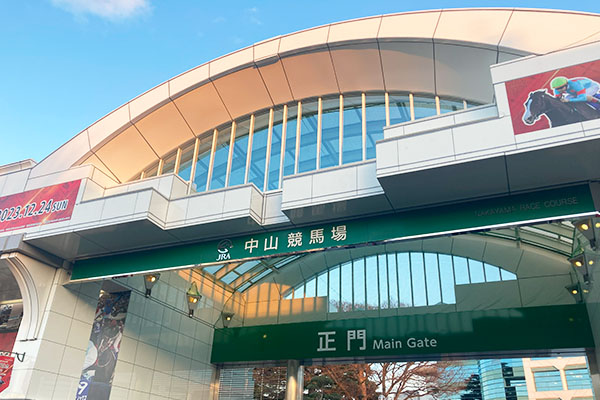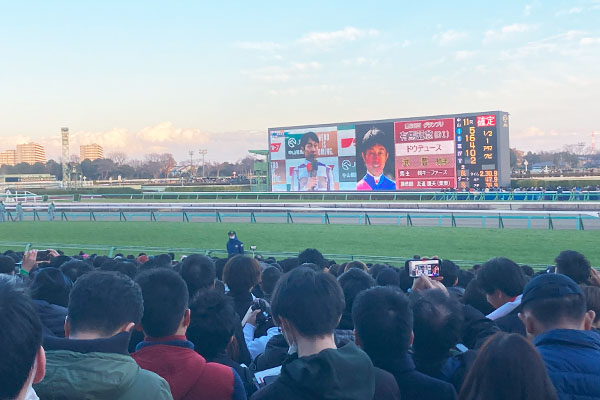Happy New Year!!
For me, this will be my first post of 2024.
In Japan, gambling is a crime defined by the Criminal Code.
Gambling is prohibited for the following reasons:
(1) To cause the nations to be lazy and wasteful.
(2) To disturb the good work ethic that forms the basis of a healthy and cultured society, or to provoke assault, intimidation, killing, theft or other secondary crimes;
(3) To have a risk of serious damage to the functioning of the national economy.
On the other hand, gambling activities stipulated in special laws such as lotteries, horse races, bicycle racing, are not illegal because they are part of the source of income such as the national treasury.
For example, the Year-end Jumbo lottery tickets with a first prize of 700 million yen and 300 yen each have been sold for more than 100 billion yen.
Here, I’d like to introduce the big horse racing that is considered to be a year-end tradition along with the lottery.
The Arima Kinen is a Grade I flat horse race open to Thoroughbreds which are 3-years-old or above. It is run over a distance of 2,500 meters (turf) at Nakayama Racecourse, located in Funabashi City, Chiba Prefecture.
The race takes place annually in late December. It’s one of the two races in Japanese horse racing; the other is the Takarazuka Kinen in late June.
The majority of the runners (10 out of 16) in the field are selected by a vote from racing fans, which must be a Japan Racing Association (JRA) horse.
If at least one horse in top 10 decides not to participate in the race, the void will be filled with the next available horse until 10 available runners are filled. The remainder of 6, including National Association of Racing (NAR) and foreign-based horses, are determined by the amount of prize money they have won.
The event was first run in 1956, and it was initially titled the Nakayama Grand Prix. The following year, when JRA president Arima Yoriyasu, who advocated holding a big race at Nakayama Racecourse by fan votes comparable to the Japanese Derby, passed away, it was renamed in honor of his achievements.

“Kinen” means “memorial” in English.
The recent race, which was held on Christmas Eve 2023, had sales of about 54.6 billion yen and about 53,000 visitors. The Arima Kinen continues to be the world’s most lucrative horse race.
For reference, the record high in sales was about 87.5 billion yen in 1996, and the record number of visitors was about 177,000 in 1990. Both are records of a time when entertainment was not as abundant as it is now, and there was no means of voting via the Internet.
The first time I watched the Arima Kinen at Nakayama Racecourse was in 1991, when I was a university student at the time. At that time, it was prohibited by law for students to purchase tickets for winning horse ballots.
But thanks to the JRA’s then prince and current legendary jockey Take Yutaka, who became the oldest jockey to win last year’s Arima Kinen, and some horse racing video games, the 2nd horse racing boom was underway, attracting many young people.

JRA is a special corporation supervised by the Minister of Agriculture, Forestry and Fisheries under the Horse Racing Act and fully funded by the national government, and races are held at 10 racecourses nationwide usually on Saturdays and Sundays.
On the other hand, NAR is a local joint corporation based on the Act, and horse races are organized by 14 local municipalities. It can be held on weekdays.
Annually on December 28, after the Arima Kinen, the only Grade I race organized by NAR, the Tokyo Daishoten, meaning the Tokyo Grand Prix, is held at Oi Racecourse in Shinagawa City, Tokyo.
The Arima Kinen may be a national event, but this race run over a distance of 2,000 meters (dirt) must be the last big race of the year for the hardcore horse racing fans like me!! The most recent race had about 29,000 spectators.
The biggest difference between horse racing in Japan and that in Europe or the Middle East seems to be that it is not supported by royalty or the wealthy, but is a pastime for ordinary citizens. I hope that foreign tourists will experience the enthusiastic atmosphere unique to Grade I races in Japan, which leads the world in horse racing.

Comment